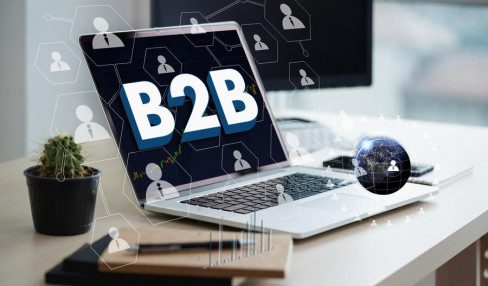Everything You Need To Know About Data-Driven Personalization
5 Mins Read
Published on: 22 July 2023
Last Updated on: 11 November 2024

toc impalement
Gone are the days of generic advertisements sent out to a wide audience. To boost consumer conversion rates and stay ahead in a competitive market, marketers must now embrace a particular, individualized, and strategic approach to their marketing efforts.
By harnessing the power of data, marketers can gather valuable insights about their customers and deliver customized and relevant content at the right time. In this article, let’s explore everything you need to know about data driven personalization and how it can help in your marketing strategies.
Data-Driven Personalization: An Introduction
Data-driven personalization involves leveraging the information collected about individuals to send tailored content at the ideal moment. The fundamental goal of personalization is to provide value to each person at precisely the right time.
Today, customers expect brands to pay attention to their unique wants and needs and to listen to them. Personalization allows marketers to contextualize their services, experiences, and messages based on the specific profile of each visitor. Personalization allows marketers to contextualize their services, experiences, and messages based on the specific profile of each visitor.
Understanding Modern Personalization

Personalization has evolved significantly over the years. While including a customer’s name in an email subject line was once considered groundbreaking, today’s market demands a more robust and deliberate approach to personalized marketing.
Personalization goes beyond simple marketing communications and now encompasses digital interactions built on a foundation of data. By gathering, analyzing, and leveraging consumer demographics, interests, and behaviors, marketers can develop campaigns, content, and experiences that truly engage their target audience.
The Benefits Of Data-Driven Personalization
Choosing The Right Communication Platform
The digitization revolution has given rise to multiple communication platforms. Understanding which platforms your target audience prefers is crucial for effective marketing automation.
Data-driven marketing enables thorough analysis of your customers to determine their preferred channels, allowing you to target them on the platforms they engage with most. You may keep track of many types of data, such as client names, addresses, contact information, and special days, which help improve customer experience, by capturing the relevant data and immediately cleaning, safeguarding, and enriching it.
Sending Messages At The Right Time
The success of your marketing campaigns relies on delivering messages at the optimal time. The best time to send marketing messages depends on the target market and the product.
By analyzing open rates and experimenting with different send timings, you can identify the periods when your target audience is most likely to engage with your content. In an era where inboxes are flooded with promotional messages, sending your communications at strategic moments ensures they stand out from the crowd.
Gaining Insights For Effective Campaigns
Every action a visitor takes on your website provides valuable insights for building a comprehensive customer profile. By capturing and analyzing data on browsing habits, you can develop tailored marketing campaigns that convert visitors into customers. For example, if a customer repeatedly visits a product page, you can target them with personalized offers and recommendations related to that specific item.
Adapting Strategies With Data
Many businesses possess vast amounts of customer data that often goes untapped. Data-driven personalization empowers you to utilize this valuable information and create customized strategies that enhance the customer experience.
Customer Data Platforms (CDPs) can provide a deeper understanding of visitors’ interests and behaviors across various touch points such as commercials, online visits, and in-person store visits, enabling more effective personalization.
Navigating Privacy Concerns
The privacy paradox poses a challenge for data-driven marketing. Consumers may express privacy concerns but willingly share their data for personalization purposes. The key lies in using data responsibly and transparently.
While most consumers appreciate data-driven marketing that adds value to their experience, there are boundaries to be respected. It’s important to strike a balance between personalization and privacy. Consumers may find it discomforting when businesses demonstrate overly intrusive knowledge of their whereabouts or bombard them with targeted ads immediately after viewing a product.
Receiving ads for products they’ve just looked at online is another thing that many consumers find offensive. This is particularly true if they paid for the item. (This form of advertising, known as “retargeting,” can occur both before and after a purchase.) As a result, respecting consumer boundaries and using data ethically is crucial to maintaining trust and building lasting relationships.
Data Security And Transparency
Consumers’ worries about data privacy aren’t only about what your company does with the data, but also about what criminals might do with it in the event of a breach or hack. According to an RSA survey, 64% of US respondents would place the blame for any theft of their personal data on the companies, not the hackers.
As a result, brands must adapt accordingly. Be open and honest about the data you collect and how it will be used. Implement robust security measures to protect customer data from breaches and hacks and build trust through data security and transparency.
Automating Data-Driven Personalization
In the realm of data-driven personalization, delivering customized interactions that make customers feel heard and noticed is crucial. However, equally important is the element of timeliness. To maximize the impact of contextually relevant interactions, leveraging intelligent analytics and real-time data processing is key.
By automating communications based on triggers and changes in consumer behavior, businesses can ensure that they are consistently delivering pertinent information that aligns with the needs and goals of their customers at any given moment.
Imagine a scenario where a customer closes their browser after partially completing a form for an insurance policy. In this case, automating an email with instructions on how to resume the form exactly where they left off after a few days can serve as a gentle reminder and bring the insurance company one step closer to conversion.
By utilizing triggers like this, businesses can proactively engage customers, providing them with timely and relevant information that helps guide them through the customer journey. When it comes to personalizing messaging, it’s important to keep a close eye on each customer’s unique preferences.
While marketers may set a general boundary for their customer base as a starting point, it’s essential to dig deeper and investigate preferences on an individual level. This involves understanding what tone, frequency, and message resonate most effectively with each specific client.
By tailoring messaging to align with individual preferences, businesses can create a more meaningful and engaging customer experience. Automating interactions based on triggers not only saves time and resources but also enhances the overall customer experience.
Endnote
Data-driven personalization has revolutionized marketing, allowing brands to deliver customized experiences that resonate with their target audience. By harnessing the power of data, marketers can build meaningful customer interactions and achieve higher conversion rates. However, it’s crucial to navigate privacy concerns, respect boundaries, and prioritize data security to maintain customer trust.
Read Also:


















Comments Are Closed For This Article